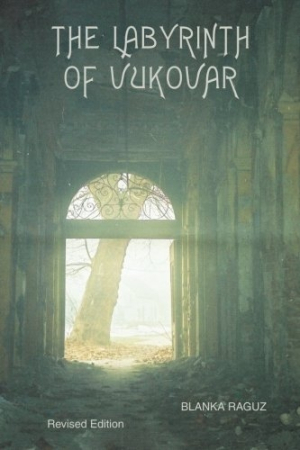The Labyrinth of Vukovar
This beautifully written and complex story follows decades of historical turmoil.
The Labyrinth of Vukovar by Blanka Raguz is a heart-wrenching book that explores love, loss, education, dreams, and friendship during modern times of war and peace.
This sweeping saga follows Marta Tomic from her childhood through to adulthood. She grows up in communist Croatia and Yugoslavia, dreaming of a life as an actress in America, until war comes directly to her doorstep.
Marta is a strong and intelligent protagonist from the beginning. She sees the communist propaganda around her, and learns to make teachers and adults believe that she accepts it.
When Marta’s father loses his job because of his perceived anti-communist ties and actions, Marta faces ridicule among her classmates. Through this, Marta become even more self-sufficient, learning to lean on her love of the stage in order to become who wants, where she wants.
That love leads her to apply for a scholarship in America, where she lives with a man who calls himself Uncle Maxim, his daughter, Kyra, and his stepson, Ian, until a crisis forces her to return to Croatia.
Marta learns that love isn’t always returned, and that heartache is a fact of life. She comes to realize her place will always be in her hometown of Vukovar.
Marta is a very well-written character; she is fleshed out with intricacies and depth, and that development becomes the novel’s best feature. She seems like a typical girl in the beginning, with infatuations and idealistic dreams of a lavish life in America. But her character evolves in a fluid and natural way; she becomes an intelligent and insightful woman who no longer sees the world through rose-colored glasses.
Other characters, like Uncle Maxim, who is set up as an antagonist but does not quite seem one, aren’t as well realized. His evil tendencies are shown, but his motivations for ill actions are completely unclear until the end of the story.
Points of view change suddenly, shifting from Marta to others in her scenes, which is jarring. Descriptions repeat, as do portions of the story, with characters rehashing events to each other.
The story is surprising and unfamiliar, and it goes in unexpected, unpredictable directions, making it hard to put down. A few convoluted moments in the plot do lead to slight lags, but attention is always revived.
Labyrinth of Vukovar is a beautifully written and complex story that follows decades of historical turmoil.
Reviewed by
Allison Butler
Disclosure: This article is not an endorsement, but a review. The publisher of this book provided free copies of the book and paid a small fee to have their book reviewed by a professional reviewer. Foreword Reviews and Clarion Reviews make no guarantee that the publisher will receive a positive review. Foreword Magazine, Inc. is disclosing this in accordance with the Federal Trade Commission’s 16 CFR, Part 255.

